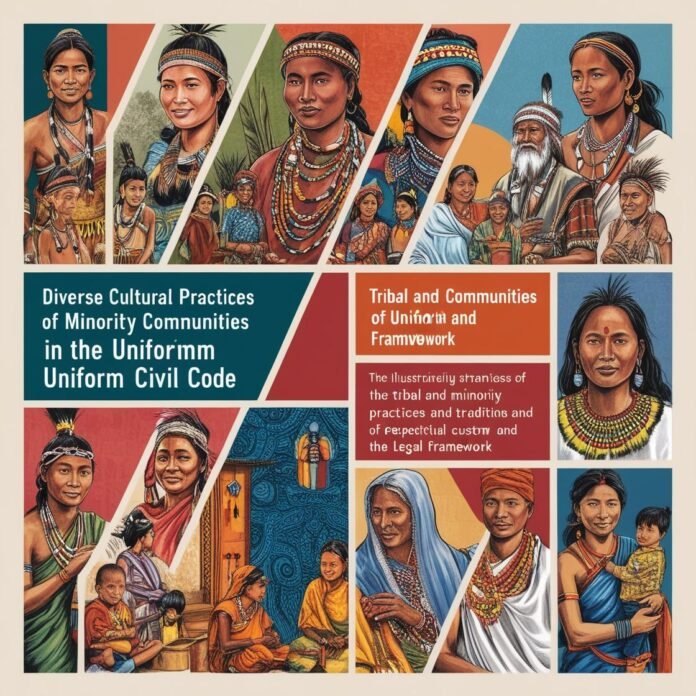An Anthropological Perspective
The implementation of a Uniform Civil Code (UCC) in India has been a source of intense debate, particularly in relation to its potential impact on tribal communities and minorities.
From an anthropological perspective, the introduction of a UCC raises concerns about the preservation of cultural and religious identities among these groups, whose customs and traditional legal systems may differ significantly from the mainstream.
Evidence from Anthropological Perspectives:
Cultural Homogenization:
The UCC may lead to the erosion of customary practices among tribal groups, who often have their own legal systems and social norms.
Anthropologists argue that tribal communities have unique ways of resolving conflicts and managing social relations, which may not align with a uniform legal code designed for the entire nation (Gluckman, 1965).
Religious and Cultural Rights:
For many tribal and minority communities, customary laws are deeply intertwined with their religious and cultural identities. The imposition of a UCC could be perceived as an infringement on their right to maintain their own legal systems, leading to potential marginalization (Dam, 2006).
Gender Justice and Minority Rights:
While some proponents argue that the UCC could advance gender justice, especially for women across communities, critics fear that a uniform system could override the protective measures that tribal and minority laws have evolved to balance their internal power dynamics. Feminist critiques suggest that focusing solely on gender equality without considering other axes of identity such as ethnicity could further marginalize minority women (Arya, 2007).
Tribal Autonomy:
Tribes in India have historically been self-regulating, with governance systems rooted in local customs. The UCC, by imposing external legal norms, may undermine their autonomy, a key issue in postcolonial anthropological discussions on tribal self-governance (Saxena, 2006).
Legal Pluralism vs. Uniformity:
Legal pluralism, which allows multiple legal systems to coexist, is seen as essential in India’s diverse society. Many anthropologists argue that the UCC’s push for uniformity conflicts with the plural legal realities of tribal and minority communities, potentially eroding the flexibility that allows for cultural diversity (Menski, 2008).
Conclusion:
UCC could pose challenges to the preservation of tribal and minority identities by imposing a legal framework that may not align with their customary practices.
While it has the potential to bring gender justice, its impact on cultural diversity must be carefully considered to avoid further marginalizing vulnerable communities.

